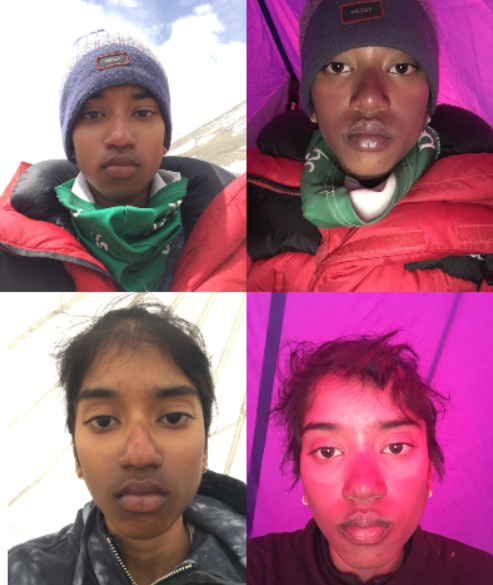
"Girls can do anything, and there's no one, no one that can stop us" - Hasvi Muriki
3 minute read
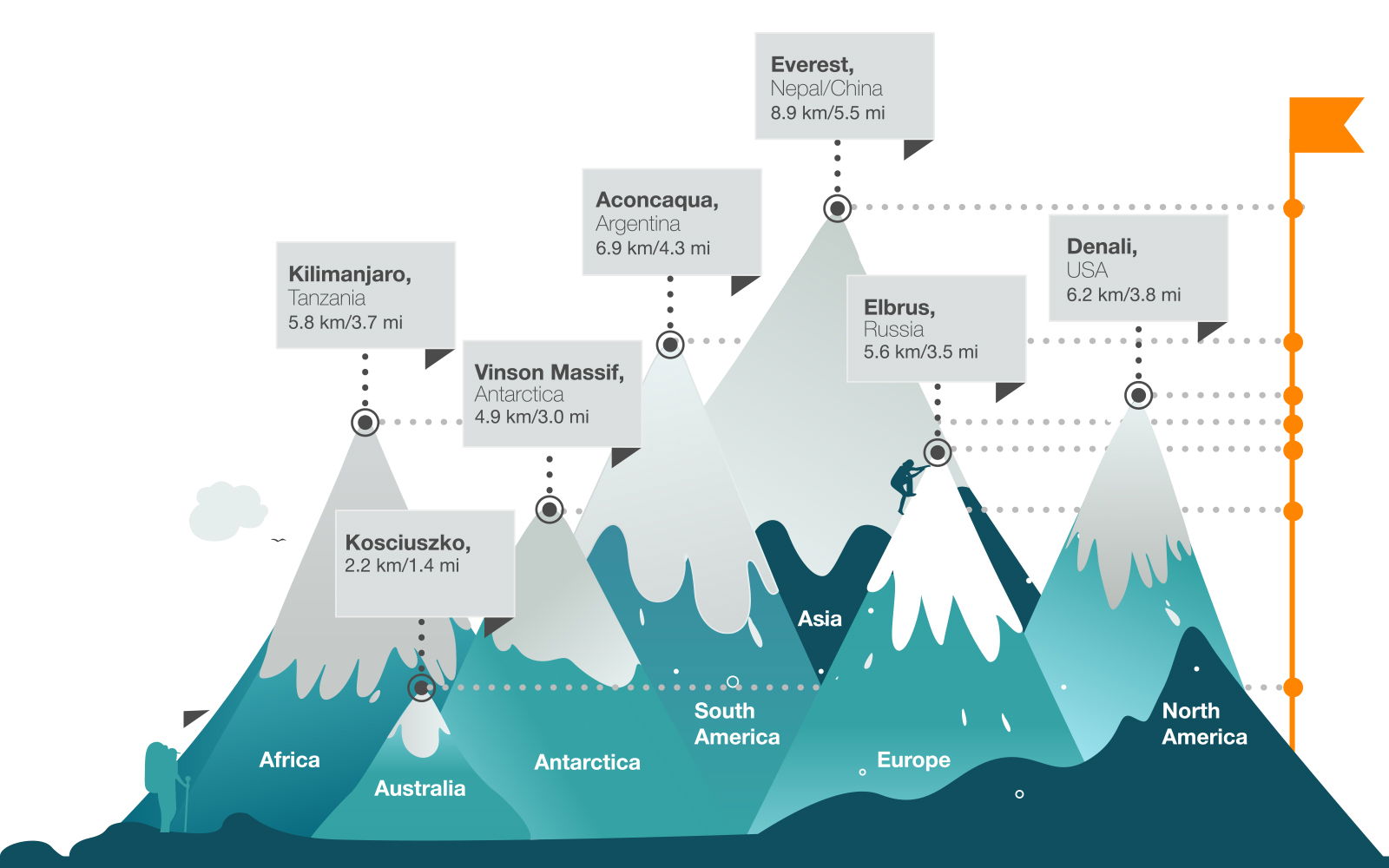
Akhil: The movie 'Everest' inspired you to go on your first trek. What impact did the movie have?
Hasvi: It was all about the timing when I watched the movie. It was Covid, so I watched the movie when I was jobless. I used to finish my homework and do some cycling or running. Then I would be just sitting at home, doing nothing. That's when I saw the movie Everest. It triggered my interest. I didn't know anything about mountaineering so I told my parents I should go on a trek to explore the world and meet people.
Akhil: How did you parents react?
Hasvi: Whenever I see a movie, I go crazy. If I see Jolly LLB I feel like I want to become a lawyer. When I saw Interstellar I wanted to go into the space. So they already know me that I'm crazy about dreams.
The first time I watched ‘Everest’, I didn't understand anything. I thought it was a setup of Everest and it was not a real story. And then I watched like three to four times and I researched a lot about it to know that it's actually a true story, it actually happened. Then I saw a couple more documentaries, that got me more interested and then I told my dad…
Akhil: What is your home environment like? Do you sit around the dining table and discuss sports and marathons?
Hasvi: We do have sports conversations, we also have conversations on studies, like what should I study for my undergraduate.
My brother is an international skater. We used to skate together. I was also a national level skater. I evolved from skating to cricket and then badminton.
My parents are both educationists. They're not full-time sports persons. They started running because they wanted a break from working life. So I saw my parents running, my brother skating and I thought - sports isn’t such a bad thing.
Subscribe to Trek Library and access premium content, free.
Akhil: EBC was your first trek. Since then you have done UT Kangri, Kang Yatse, Dzo Jongo, Kilimanjaro, Elbrus, Kosciuszko. How has your training evolved?
Hasvi: For EBC I started training two months before. I didn't know anything about Everest Base Camp. I didn't know how difficult it was going to be. I just had my fitness from playing badminton and cycling. I used to cycle a lot, probably 20-30 kms with friends. I thought it was enough. It clearly was not enough because the first three days on EBC I was like a dead body. Ankle twists, leg hurting. I didn't have much muscle that time, I didn't know about muscle training. I didn't know what strength training was, I didn't know about proper cardio.
I prepared better for Kilimanjaro. I went from being unable to lift 10 kgs to lifting twice my bodyweight. From skipping legs day to training legs thrice a week! I had fitness classes, climbed stairs, stretching.. The real prep was for for the winter climb of UT Kangri. The weather was -40 degrees and wind speed upto 60 kms. We couldn’t summit. That really put me in a bad spot. I had prepared really hard and couldn’t reach the summit, it really made me depressed
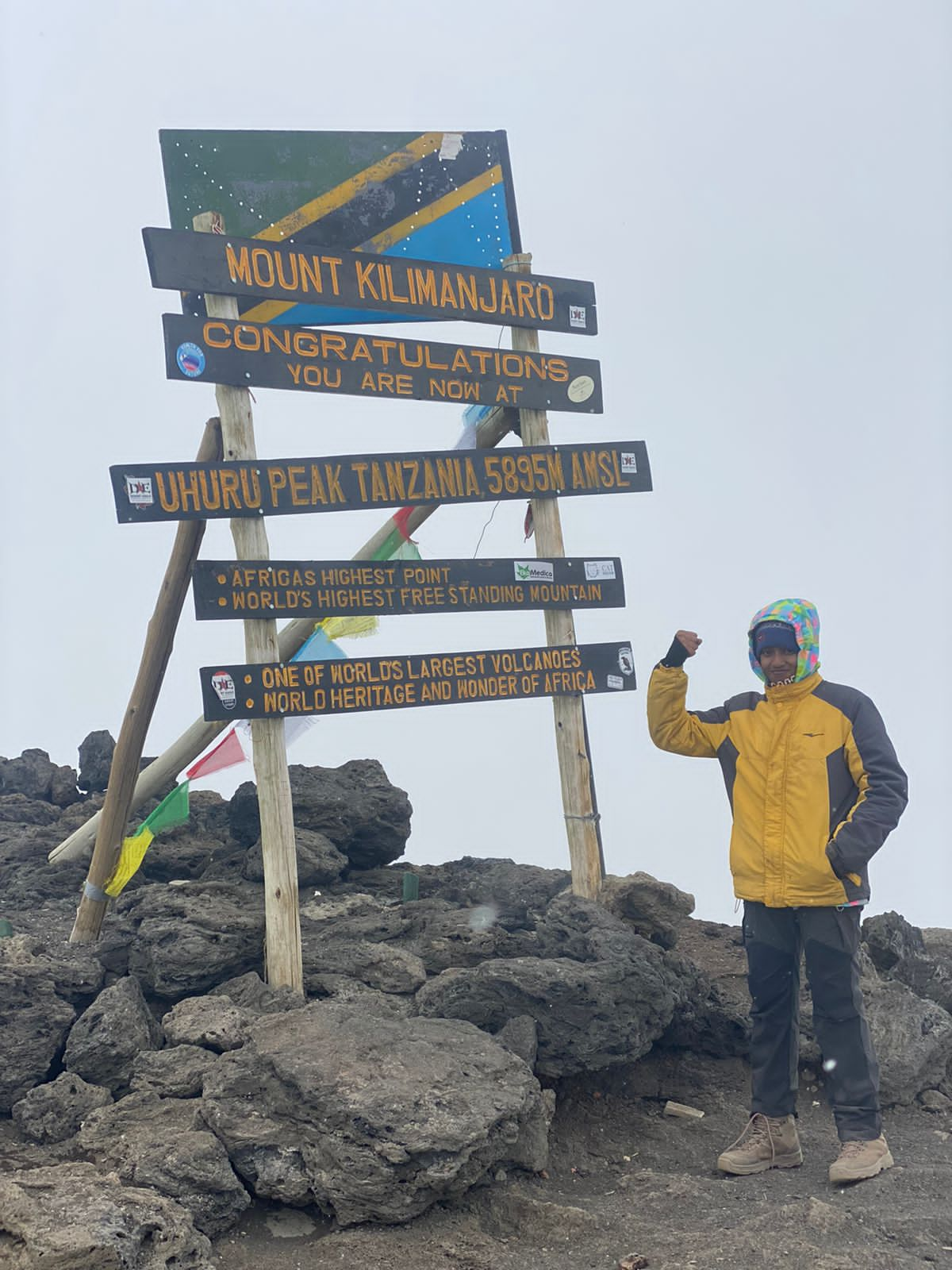
I had two options. Either to give up and continue studies. Or have an adventurous life to manage both studies and mountaineering. I choose the second option and started my crazy fitness in February until June 9th, 2022. I was so consistent that I didn’t even have a single cheat day.
-f3vbg.jpg)
I used to wake-up by 3:30am to do cardio - running, cycling. Then do strength training in my fitness class before rushing to school. Another workout in the evening before take a little rest. At night, a little walk or something. I used to sleep by 10pm and wake up at 3:30am again.
I would climb 300-400 stairs, run 21 kms and do night walks with ankle weights and a 10 kg bag. I won’t listen to music and made it as boring as possible to replicate the silence of summit nights. I went back to UT Kangri and became the youngest to climb it. That made me happy. It was worth it.
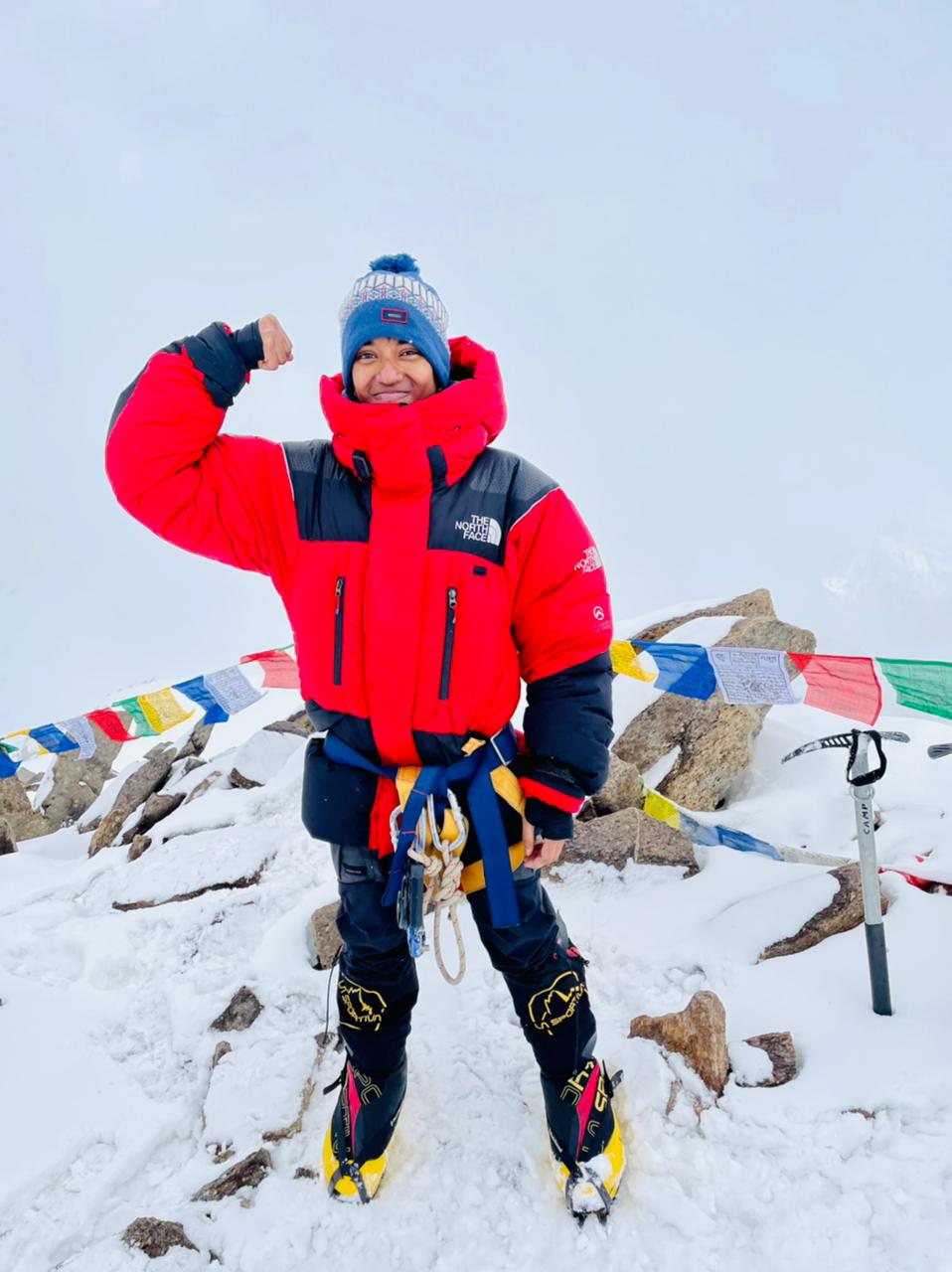
Akhil: What does your nutrition look like? Do you consult anyone?
Hasvi: Yes, I have a nutritionist who is also a mountaineer, Dt. Anupama Upadhyay. Earlier I used to think that eating less would make me stronger. I wish I could go back in time and tell myself that you would never gain muscle that way. There was so much pressure on me - 10th standard studies, mountaineering, workouts. I was starving myself, I was malnutritioned. My haemoglobin levels went drastically down. I would scroll dishes after dishes on Swiggy but wouldn’t order anything. I had an eating disorder, I couldn’t make myself to eat. It was a tough time.
It took time for me to recover and now I am much better because I gained muscle mass. Mornings, I drink a Smoothie or have upma with rajma or some other source of protein like tofu. Lunch I have either a grilled chicken or chicken curry or fish curry; quinoa oats and millet or ragi roti with some curry. I like snacking before workout in the evening, something solid like oats with protein powder or a protein smoothie. For dinner, I keep it light. I eat a salad and then rice and dal. I prefer eating rice at night.
Subscribe to Trek Library and access premium content, free.
Hasvi is a very determined and disciplined girl. She has been working with me for over a year and has shown dedication in sticking to recommended meal plans and timings despite the challenges that arise from an adventurous sport. As her nutrition coach, I continue to educate her on nutrition principles while also acknowledging flexibility and occasional indulgences to maintain a healthy relationship with food.
Anupama Upadhyay, Sports Nutritionist
Akhil: What does being the youngest to climb the highest peak of all 7 continents mean to you?
Hasvi: After EBC I decided that I would be climbing all the seven summits because I wanted to explore. I wanted to challenge myself because all seven mountains have different terrains and locations. I told myself “this is just the starting, why am I stuck at the first page, why can't I read the whole book?”
I also wanted to travel to all the continents and become the youngest to finish to show that girls can do anything. A part of the world still thinks that women are weak. They're just made for household work. They're not useful. I want to show them that women are pretty strong at sports. People say that women make good doctors and men make good engineers. Women can also be engineers. Men can also be doctors. These are stereotype and I want to break them.
Girls can do anything, and there's no one, there's no one that can stop us. People say that girls are physically not as strong as men. That's not true. If you train for it, anyone can become strong. You need to have the mental strength to to achieve a goal, then work day and night. So that is my goal, not Everest.
Akhil: I'm blown away.
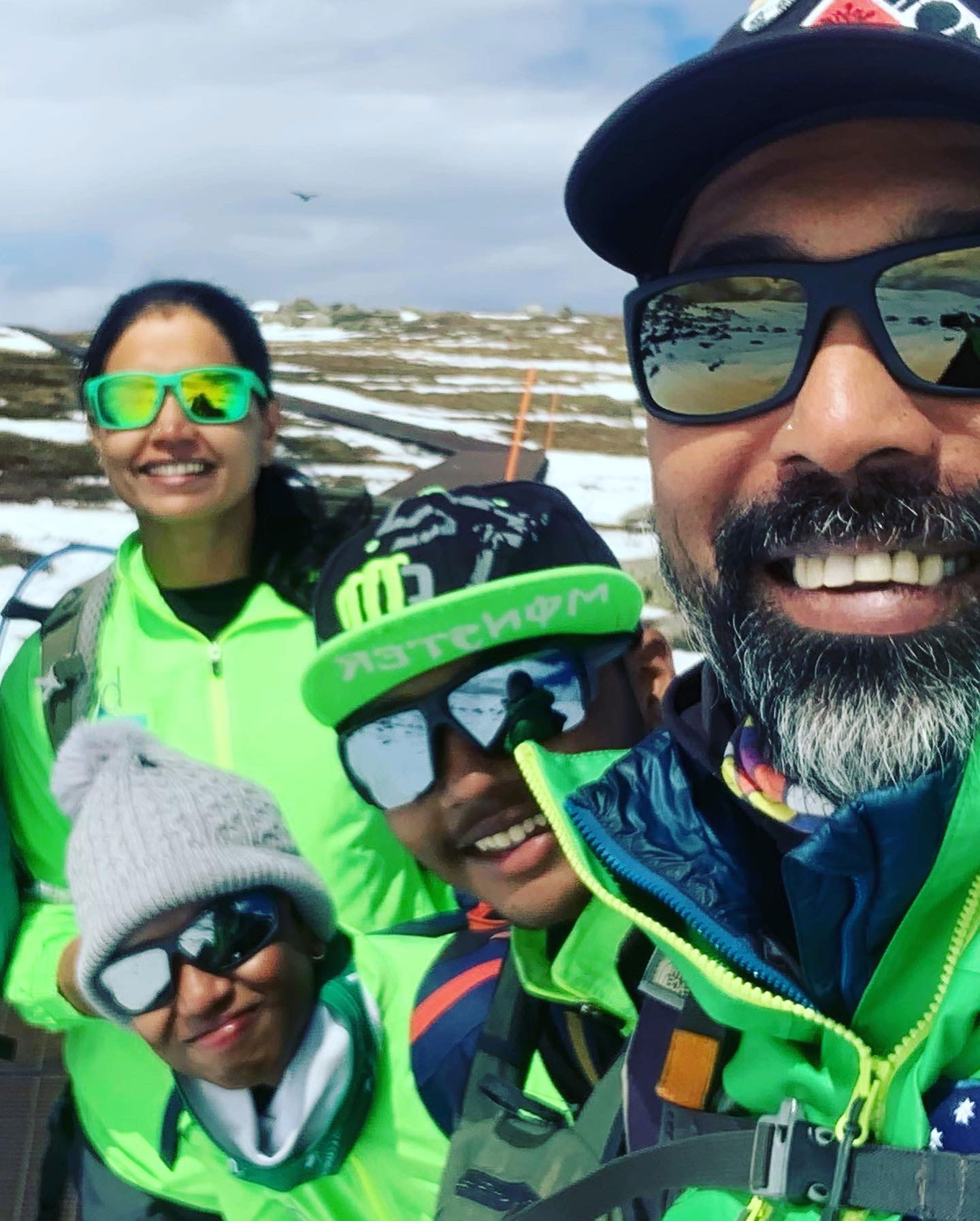
Akhil: One of your sports teacher said something that did not sit well with you. What happened?
Hasvi: There are many such incidents that happened but this was one of the most moving incident. I was in ninth and this instructor comes and says “Let's exercise. Girls, do push-ups on your knees. Boys, do normal push-ups.”
I said “Sir, even girls can do normal push ups.”
He asked me “You can do it? Show me”.
And then I basically pushed up on five fingers, four fingers, three fingers, on my knuckles and then finally a diamond shape. It changed the perspective of people how they think about girls. Seeing me two or three other girls did it too. Then the whole group of girls did it.
Action speaks louder than words.
Subscribe to Trek Library and access premium content, free.
Akhil: Is there anyone you aspire to be like?
Hasvi: I don't like keeping an idol for myself. I like taking inspiration from a multiple things around me. If you're looking for inspiration, then inspiration is all around you.
Akhil: Mind gives up faster than the body does. How do you prepare mentally?
Hasvi: I live in a society that has a 1 km radius and I would run 10 loops. It is stressful for the mind, keep seeing the same thing over and over again. This builds mental toughness. When the whole neighborhood is asleep and you’re running around at 3:30am in the morning, that build mental toughness. Whenever I would hit an obstacle, I would just remind myself that I’m doing this in order to climb the Seven Summits.
Akhil: Mountaineers are great at suffering.
Hasvi is an extremely focused, hardworking and compassionate girl. During Kilimanjaro climb she had stomach issues but she didn't give up and went on with the climb. She fights her fears in each climb.
Gayatri Mohanty, Mountaineer
Akhil: Do you get time to read?
Hasvi: I love reading autobiographies. I recently read ‘It's Not About The Bike’ by Lance Armstrong. I love watching documentaries on mountains.
Akhil: Do you see any parallels between playing sports and performance in school?
Hasvi: I was definitely able to focus more and my approach to a problem has improved. Earlier I would be working on a math problem and after a few minutes I would walk up to the teacher to ask for a solution. In sports you see so many problems, injuries, hurdles but you don't give up, right? So now, instead of asking the teacher, I try 45 times.
I still remember, before I started playing sports I used to wake up around 7:30 am and rush to school at 8:30 am. Now, things are systematic. I wake up at 6:30, by 6:45 am I have brushed my teeth, by 7:30am I have showered and ready. From 7:30 - 7:45 am it’s newspaper or homework. Reach school by 8:30am. Sports has taught me time management.
Akhil: You’ve learnt what people in their 40’s are still struggling to learn.
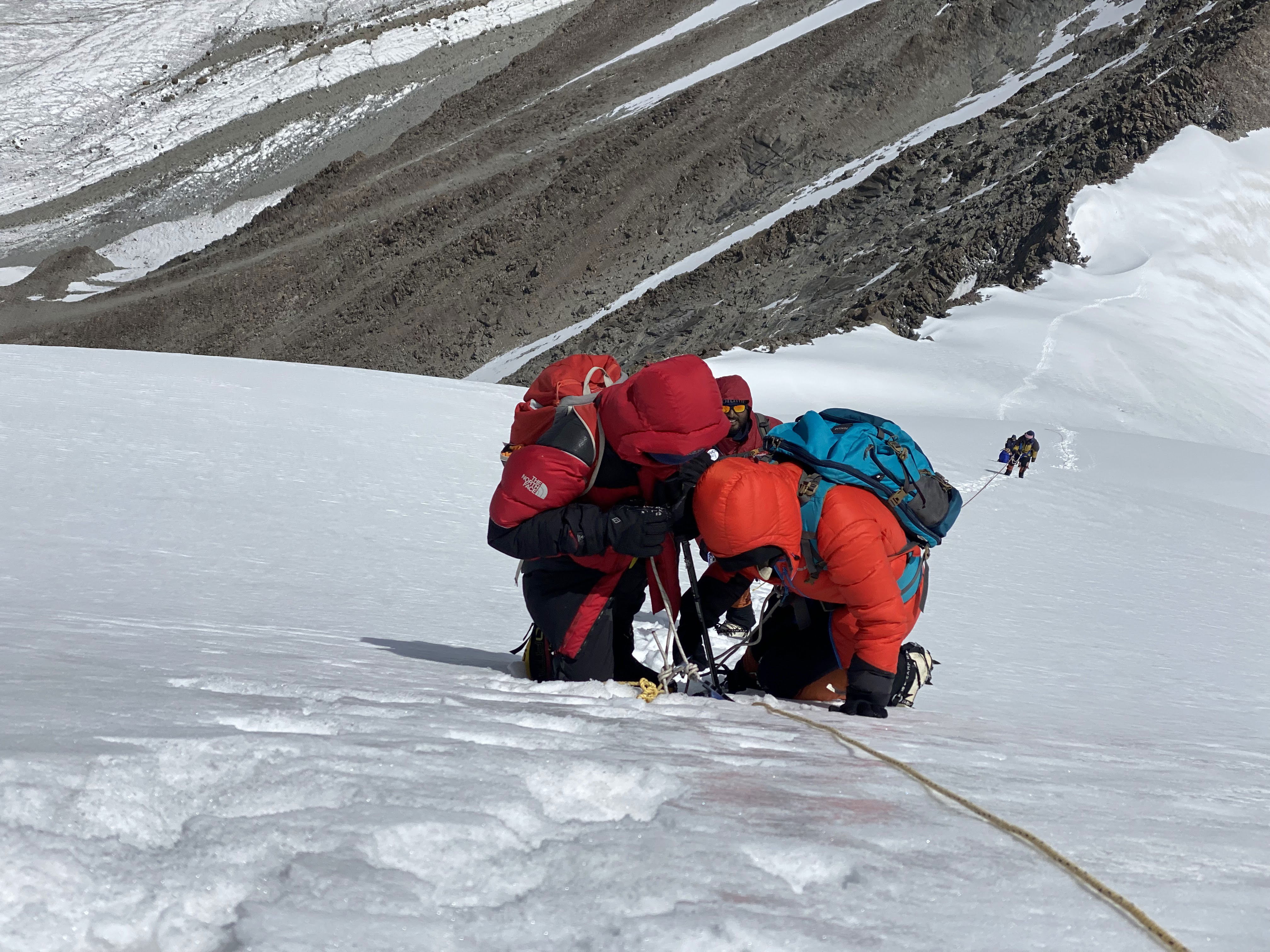
Akhil: You have already climbed 3 out of the 7 highest peaks of each continent. What’ next?
Hasvi: I'll be in 11th this year and 12th next year. So I'm planning to take a little slow because you know I also need to focus on my studies and SATs. Plan is to climb Aconcagua in 2023 and Mt. Everest in 2024.
Akhil: What is the current record?
Hasvi: The current record is held by Poorna Malavath when she completed all 7 peaks by 22 years. I should be able to accomplish it by when I am 17-18 years.
Akhil: You mentioned in an interview “my dreams keep changing, my aspirations remain the same”. Please elaborate.
Hasvi: So dream is basically, you know, I wanted to become a neuroscientist. Now, I want to become a lawyer. It keeps changing, in two three months I'll be like, no, I want to become a software engineer or I want to become a mountaineer. So, dreams keep changing. But the aspiration is to give back to the society doesn't. I'm working with a couple of NGOs to solve clean water and sanitation issues in villages of India. Secondly, to empower girls who don't get the opportunity like I did.
It's rare to find a 15 year old approach life and sports with so much dedication and humility. On behalf of the Trek Library Community, I wish Hasvi the best for her goals. May she shine in whatever she chooses to become. Jai Hind.
Akhil Dua
Subscribe to Trek Library and access premium content, free.
